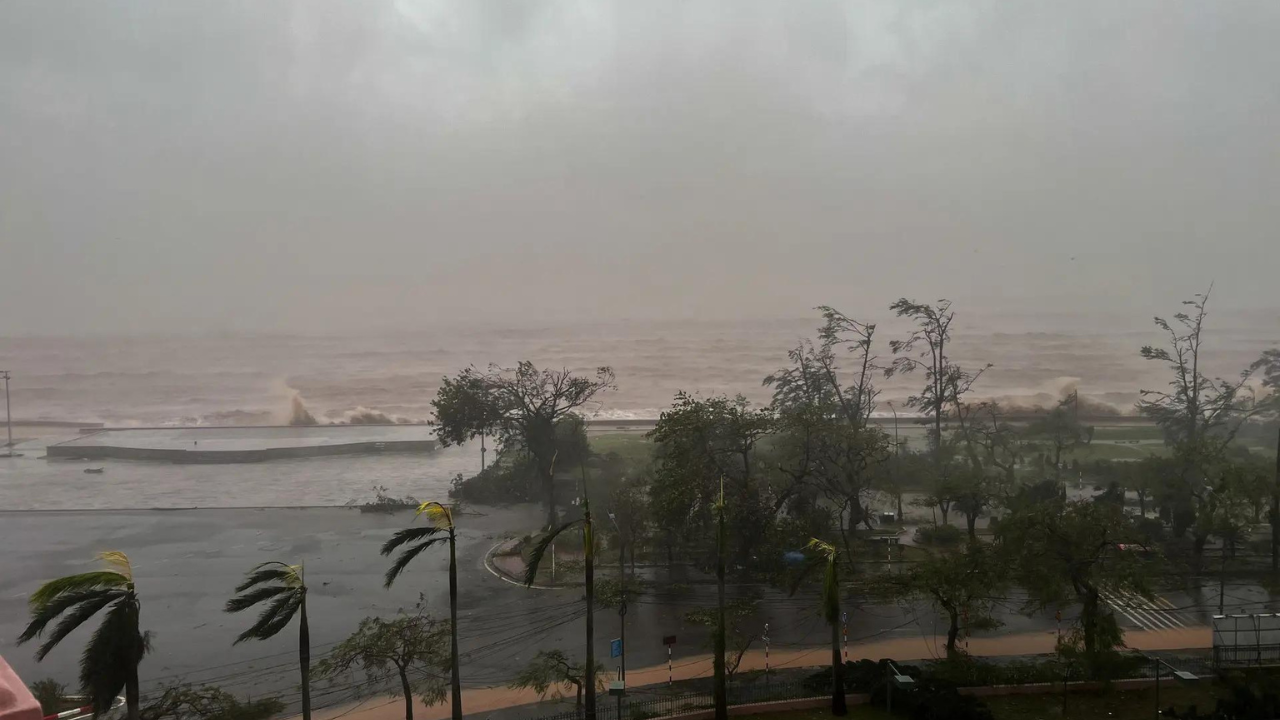Yagi made landfall in Vietnam’s Hai Phong and Quang Ninh provinces with winds exceeding 149 kilometers (92 miles) per hour, according to Vietnam’s National Centre for Hydro-Meteorological Forecasting.
The three casulaties were reportedly due roofing being torn away in Quang Ninh, while the fourth was in c Hai Duong on Friday due to heavy winds bringing down a tree, according to AFP. A man in Hai Duong province was also killed on Friday when heavy winds brought down a tree. Additionally, more than a dozen others, believed to be sailors on fishing boats, are currently missing.
“It has been years since I witnessed a typhoon this big,” said Tran Thi Hoa, a 48-year-old woman from Hai Phong. “It was scary. I stayed indoors, after locking all my windows. However, the sound of the wind and the rain was unbelievable,” she told AFP.
In Hai Phong, AFP reporters encountered streets strewn with fallen trees, metal roofing, and broken signboards that had been ripped from properties.
Before striking Vietnam, Yagi ravaged Southern China and the Philippines, resulting in at least 24 deaths and numerous injuries. In China, the storm brought winds of more than 230 kilometers (143 miles) per hour, uprooting trees and leading to the evacuation of around 460,000 people, according to Chinese state broadcaster CCTV.
At least four people were killed and 95 injured in Southern China after Yagi affected Hainan and Guangdong provinces on Friday, CCTV reported Saturday, citing local authorities. Before hitting the Vietnamese mainland, the typhoon uprooted hundreds of trees on Co To island, about 80 kilometers from mainland Quang Ninh. Office buildings, schools, and houses were unroofed by the fierce winds, while signboards lay scattered and electrical lines were snapped and tangled.
As the typhoon neared, authorities reported that the city suffered from electricity disruptions on Saturday. According to a Reuters witness, the fierce winds shattered windows in structures, and when the waves struck the shore, they reached heights of up to three meters.
Local authorities noted that the typhoon was the most severe to impact the island in decades. In anticipation of the storm, Vietnamese Prime Minister Pham Minh Chinh urged local authorities to evacuate residents from dangerous areas. He also advised other citizens to remain indoors.
Around 20,000 people were evacuated to safer and higher ground in the north of Hai Phong, Thai Binh, and Hanoi, with many taking shelter in schools, kindergartens, and other public buildings. The Ministry of Defence’s rescue and relief department mobilized over 457,000 professionals and dispatched 2,000 vehicles and six planes to manage the aftermath of the typhoon.
Northern Vietnam has faced continuous heavy rains and strong winds since Friday evening, impacting the capital, Hanoi. Four northern airports, including Hanoi’s Noi Bai International Airport, have been shut down, and sailing has been prohibited since Friday. The typhoon also killed at least 20 people and left 26 missing after devastating the Philippines earlier this week, according to the country’s latest disaster management agency reports.
Yagi caused flooding and landslides on Luzon, the main island of the Philippines, before escalating into a super typhoon. Southern China, frequently hit by summer and autumn typhoons originating from the warm oceans east of the Philippines and Thailand, saw intensified storm activity due to climate change.






